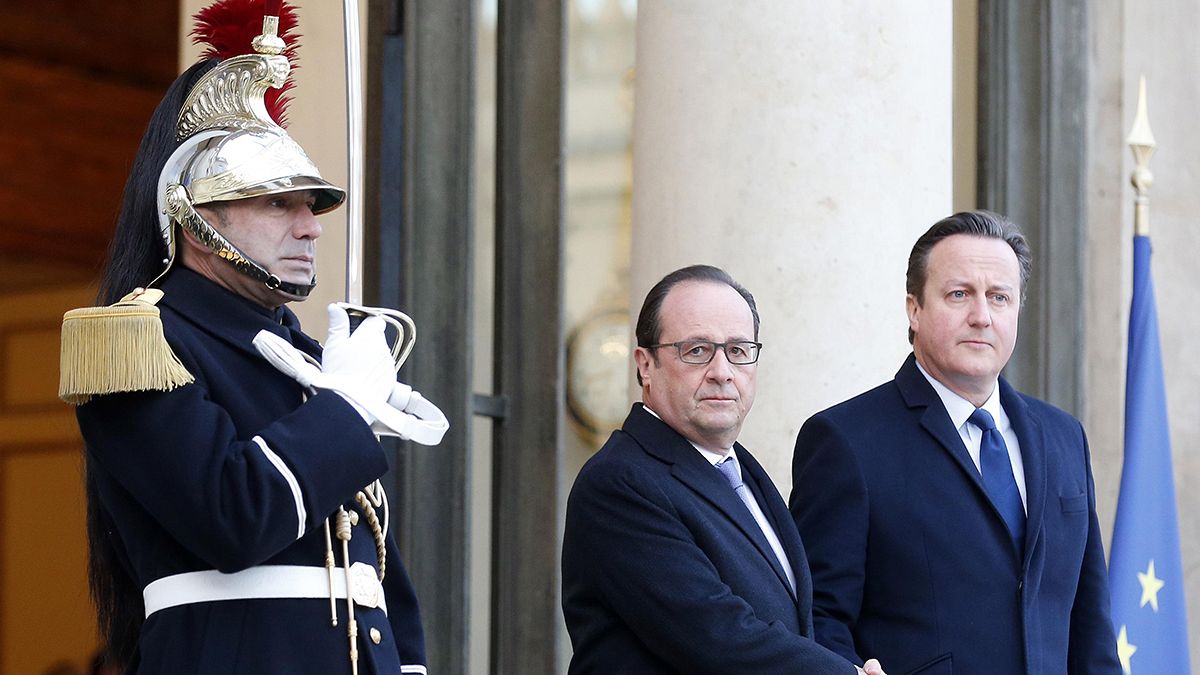France has always made clear its view that Britain should remain inside Europe.
France has always made clear its view that Britain should remain inside Europe.
During their last bilateral summit in March, French President Francois Hollande and Britain’s Prime Minister David Cameron said they see their countries futures’ entwined over several issues such as security and defence but Hollande also insisted that Britain won’t be allowed to ruin the party for everyone else.
“Great Britain must stay in the European Union, that’s my wish. But at the same time, we need the union to move forward. No country should have the right to veto. No country should be exempt from common rules and common authorities,” said Hollande. “I don’t want to make people scared but we have to tell the truth. There will be consequences if Britain leaves the EU. There will consequences in many domains.”
Only last month, the French president continued to sing the praises of Britain and France’s joint history.
“More than 20 years ago Britain and France completed a tremendous construction – the Channel Tunnel. Since then we’ve been united like never before and I hope the British remember that when the day comes.”
Entente cordial
As part of our continuing coverage on the Brexit we spoke to French economist Agnès Benassy Quéré who presides over the prime minister’s team of economic advisors.
Sophie Desjardin, euronews: Tell us what is the outcome favoured by Paris in the upcoming referendum and why?
ABQ: “It’s clear that France has an interest in Britain remaining in the EU. We mustn’t forget that the UK is an extremely important commercial partner for France, the EU in general, but France in particular. It’s a more important partner than the United States so we really don’t stand to gain if our partner is weakened because a Brexit probably will weaken Britain. When’s there’s uncertainty, the financial markets tend to run on shares considered more stable and secure and get rid of those regarded as less steady, so there’s a lot of short-term risk.
In the long term, it could create a snowball effect politically speaking, with other countries demanding referendums.”
SD, euronews: Well, there are now numerous voices, especially politicians or even economists, who’re saying finally a Brexit could be beneficial to the EU. What do you think?
ABQ: “That could’ve been true if European partners had a well constructed plan to allow further integration and Britain was an obstacle to that. But that’s not the case. In reality, it’s not Britain that prevents France and Germany from reaching a deal on banking and budgetary union, or even political integration. So, I think, unfortunately, that’s not a solid position right now because such an integration plan doesn’t exist.
However, some analysts expect that the City will be shaken and stirred by a Brexit. Some firms will probably leave but they won’t necessarily come to Paris, perhaps Frankfurt, Dublin or Amsterdam.”
SD, euronews: And yet the French government has already begun courting the City’s bankers…
ABQ: “Well of course, Paris has a lot to gain and a lot to offer but there’s healthy competition and Paris is not the only city capable of hosting financial activities so I don’t think we should really count on that and say it’ll be a good thing if Britain leaves the EU for that reason alone.”
SD, euronews: In the long term what will be the consequences for Europe, positive or negative?
ABQ: How can we save Europe in case of a Brexit? There’s a political element – resist the temptation to hold referendums in other countries. We know well that people don’t necessarily respond to the question posed and it’s extremely dangerous to build a Europe based on referendums. The other element is to propose, take the message from Britain about an alternative Europe and try to propose that to people. Give them a Europe which is to their advantage, and perhaps pay more attention to their own positions.
So, clearly if Britain leaves the EU, from an economic point of view, there may be a reorientation. Britain has always pushed quite liberal policies, so will European countries without the UK be able to resist protectionist tendencies? It’s a question we have to ask. There’s also the possibility of an imbalance at the very heart of Europe with Germany even more powerful if Britain leaves. Now, it also has to be said that the deal reached by the UK to remain in the EU is quite difficult to put into place. From a certain point of view, from a governmental point of view, it’s true to say that without the UK, things would be a little bit more simple.
